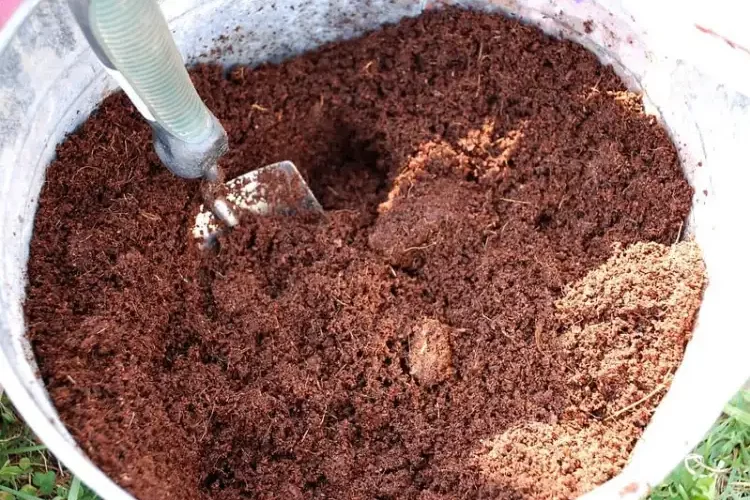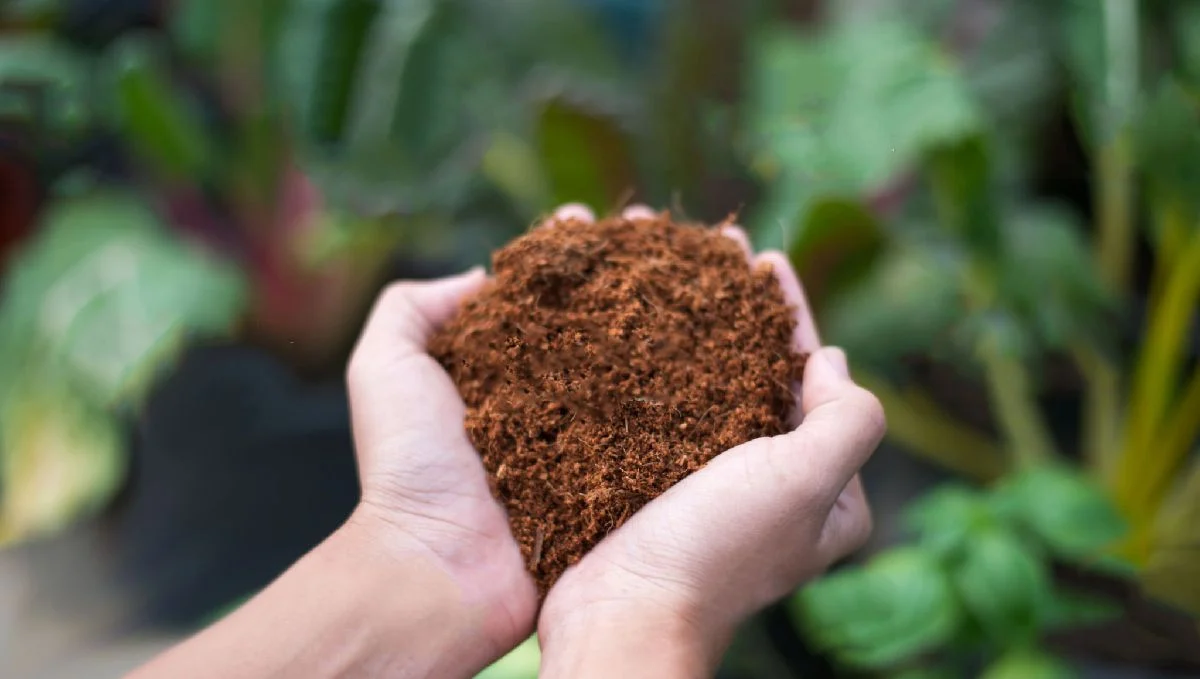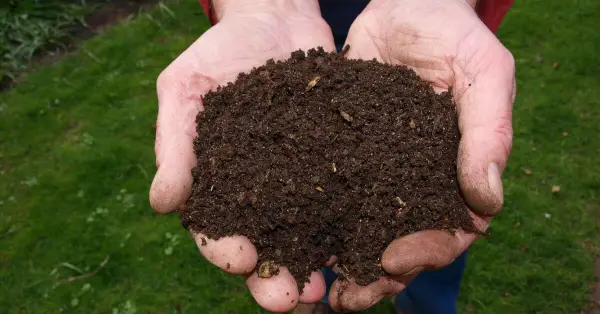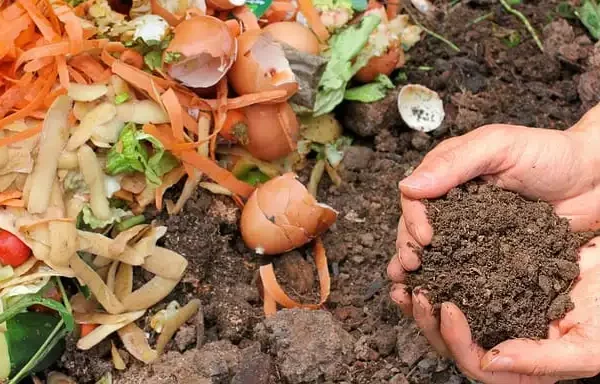Peat moss has long been a staple in gardening due to its ability to retain moisture and improve soil structure. However, its extraction can lead to significant environmental damage, including habitat destruction and carbon release. In response, gardeners are increasingly seeking alternatives that are more sustainable and environmentally friendly. Here’s a comprehensive guide to alternatives to peat moss for gardeners:
Coir
Coir, derived from coconut husks, is an excellent alternative to peat moss. It is renewable, as it is a byproduct of the coconut industry, and it has similar water retention properties to peat moss. Coir also improves soil aeration and drainage. According to the Royal Horticultural Society (RHS), coir is an environmentally friendly alternative to peat moss that can be used in various gardening applications^source.
Compost
Compost is another sustainable alternative to peat moss that gardeners can easily make at home or purchase from local sources. It improves soil fertility, structure, and water retention while reducing the need for chemical fertilizers. The United States Environmental Protection Agency (EPA) recommends compost as an eco-friendly amendment for garden soils.
Leaf Mold
Leaf mold is a natural soil conditioner produced by the decomposition of leaves. It improves soil structure, retains moisture, and enhances microbial activity. The University of Illinois Extension suggests using leaf mold as a sustainable alternative to peat moss in gardening^source.
Rice Hulls
Rice hulls are the outer covering of rice grains and are a byproduct of rice processing. They are lightweight, improve soil aeration, and enhance drainage. The Texas A&M AgriLife Extension recommends rice hulls as an alternative to peat moss for improving soil texture^source.
Pine Bark
Pine bark is a sustainable alternative to peat moss that improves soil structure and drainage. It is readily available and can be used as a mulch or soil amendment. The University of Florida IFAS Extension suggests using pine bark as a component of soilless growing media^source.
Conclusion
As gardeners strive to adopt more sustainable practices, alternatives to peat moss play a crucial role in reducing environmental impact. Coir, compost, leaf mold, rice hulls, and pine bark are all viable alternatives that improve soil quality while minimizing harm to ecosystems. By choosing these alternatives, gardeners can contribute to the conservation of peatlands and promote the health of the planet.
What are the environmental concerns associated with peat moss, prompting gardeners to seek alternatives?
Peat moss extraction contributes to habitat destruction, loss of biodiversity, and carbon dioxide emissions. It is harvested from sensitive peatlands, which are crucial for carbon sequestration and wildlife habitat.
What is coir, and why is it considered a sustainable alternative to peat moss?
Coir is a natural fiber derived from coconut husks. It is renewable, as it is a byproduct of the coconut industry, and has similar water retention properties to peat moss. Coir is considered sustainable because it does not require the destruction of ecosystems for its production.
How can compost be used as an alternative to peat moss in gardening?
Compost is organic matter that has decomposed and can be used to improve soil fertility, structure, and water retention. Gardeners can create compost at home or purchase it from local sources to replace peat moss in their gardening practices.
What is leaf mold, and how does it compare to peat moss as a soil conditioner?
Leaf mold is the result of the decomposition of leaves and is rich in nutrients and organic matter. It improves soil structure, retains moisture, and enhances microbial activity, making it a suitable alternative to peat moss in gardening.
Are rice hulls a viable alternative to peat moss, and how do they benefit garden soil?
Rice hulls are the outer covering of rice grains and can improve soil aeration and drainage. They are lightweight and readily available, making them a sustainable alternative to peat moss for gardeners seeking to enhance soil texture.
Can pine bark be used as a substitute for peat moss in gardening, and what are its advantages?
Yes, pine bark is a viable alternative to peat moss that improves soil structure and drainage. It is readily available and can be used as a mulch or soil amendment, making it a versatile option for gardeners.
How do alternatives to peat moss contribute to sustainable gardening practices?
Alternatives to peat moss reduce the environmental impact associated with peatland destruction and carbon emissions. By using renewable materials such as coir, compost, leaf mold, rice hulls, and pine bark, gardeners can promote soil health and biodiversity while minimizing harm to ecosystems.
Are there any specific guidelines for using alternatives to peat moss in gardening?
It’s essential to consider the specific needs of your plants and soil when choosing alternatives to peat moss. Some alternatives may require adjustments in watering frequency or nutrient supplementation. Additionally, consult with local horticultural experts or extension offices for guidance tailored to your region.
Where can gardeners find alternatives to peat moss for their gardening needs?
Alternatives to peat moss, such as coir, compost, leaf mold, rice hulls, and pine bark, can often be found at garden centers, nurseries, or agricultural supply stores. Some gardeners may also choose to create their own compost or leaf mold at home.
Are there any ongoing research efforts or developments in the field of sustainable alternatives to peat moss?
Researchers and horticultural organizations continue to explore and develop new alternatives to peat moss for gardening. These efforts include investigating novel materials, refining production methods, and promoting awareness of the environmental impact of peat extraction. Stay informed by following updates from government agencies, academic institutions, and reputable gardening organizations.
- Best THC Sodas to Buy in Arkansas - May 28, 2025
- Exploring THC-Infused Sodas in Arkansas - May 28, 2025
- THC Beverages Now Trending in Alabama - May 28, 2025





